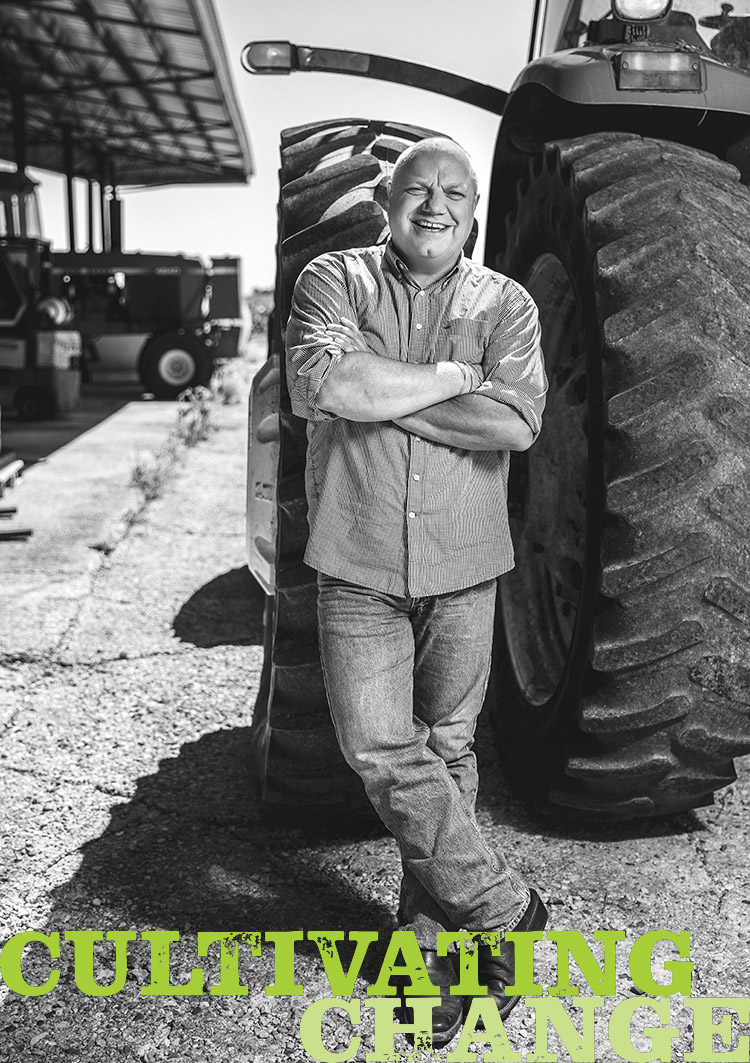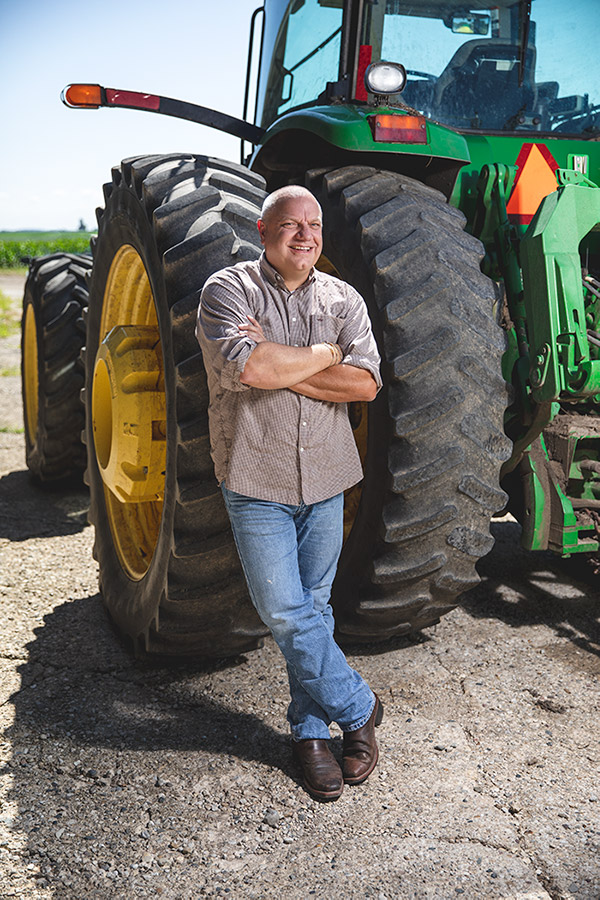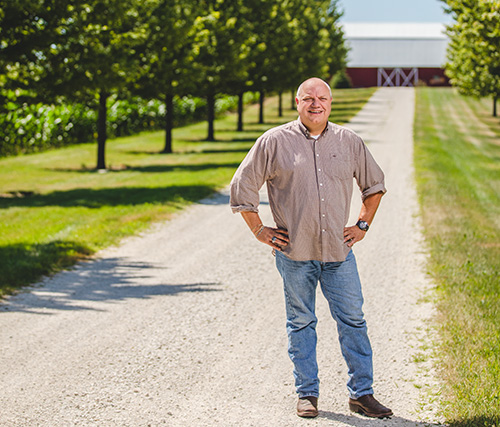
C
raig Rupp (M.S. EE ’94) recalls walking into a RadioShack in northwest Iowa as a child and discovering the thrill of tinkering with electronic components. His appetite for understanding how things work would allow him to engineer his dream job—reimagining agriculture technology. Today Rupp is co-founder and chief executive officer of Sabanto, an Iowa-based, farming-as-a-service company using autonomous planting equipment.
“My dad was a farmer and owned tractors with radios that would invariably break down,” says Rupp, who grew up in Cherokee, Iowa, where his family produced corn and soybeans, and also raised hogs and cattle. “He would give the radios to me, and I’d take them apart and just look in there and marvel at the electronics.”

This sense of curiosity led Rupp to pursue electrical engineering at Iowa State University. He launched his career as a hardware engineer at Motorola, designing and developing the first GSM (Global System for Mobile Communications) mobile station, and then worked on Motorola’s Iridium project as a lead engineer addressing satellite communication issues.
“My DNA was established at Motorola,” Rupp says.
His professional and graduate experience at Illinois Institute of Technology further enhanced his desire to experiment with new technologies. In his next role, as systems engineer for John Deere, Rupp developed the StarFire L1 and L2 GPS/L-band receivers to ensure accuracy for desired in-field performance, and architected the GreenStar 1800 and 2600 displays.
“I left Deere to start another company and then went back into wireless,” Rupp explains. “When the iPad came out, it reminded me of the display that I was working on at Deere. I thought, why aren’t farmers using this display in their tractors?”
Rupp reached out to Corbett Kull (M.B.A. ’98), a friend and fellow Motorola engineer, and they launched 640 Labs, a Chicago-based agriculture technology startup whose goal is to help farmers make better decisions with the FieldView data system, which plugs into a tractor and is then implemented into the iPad for analysis. In 2014 Climate Corporation acquired 640 Labs to strengthen the company’s data science platform for farmers.
Kull, who in 2018 co-founded Tillable, an online service for landowners to solicit farmland rental offers from growers, describes Rupp as one of his greatest mentors and recalls his friend’s fascination with integrating technology into agriculture.

“Although Craig is an engineer by training, he is actually a scientist,” Kull says. “His approach to farming is this: farming is the manufacturing of a crop. It requires measurement. It requires analysis. And it requires a feedback loop.”
In October 2018 Rupp and business partner Kyler Laird started Sabanto, a Japanese word for “servant” underscoring the company’s mission to provide a service to the farmer. Rupp explains that farmers have a narrow window to get their crops into the ground, and Sabanto works to augment their productivity through autonomous field operations.
Sabanto modified a JCB Fastrac 4220 tractor to be controlled remotely with a specialized device that directs transmission and steering movements. This system monitors latitude, longitude, vital engine parameters, and planter statistics. It can also regulate other functions by mimicking analog and digital signaling, based on observations from the GPS unit mounted on the tractor’s roof.
This past spring Rupp and Laird were the first to autonomously plant a farmer’s soybean fields in five Midwestern states. Rupp emphasizes that no matter how the duo fine-tunes its autonomous technology, it will never supplant farmers and their vast knowledge.
“We are not taking the job away from farmers; we’re taking the monotony out of it and trying to optimize their organization,” he says.
To relax, Rupp enjoys exploring the countryside on his motorcycle, pursuing what is around each curve and bend and envisioning ways to transform the agriculture industry.
“There are a lot of innovations on the horizon, and I want to see those happen,” Rupp says.